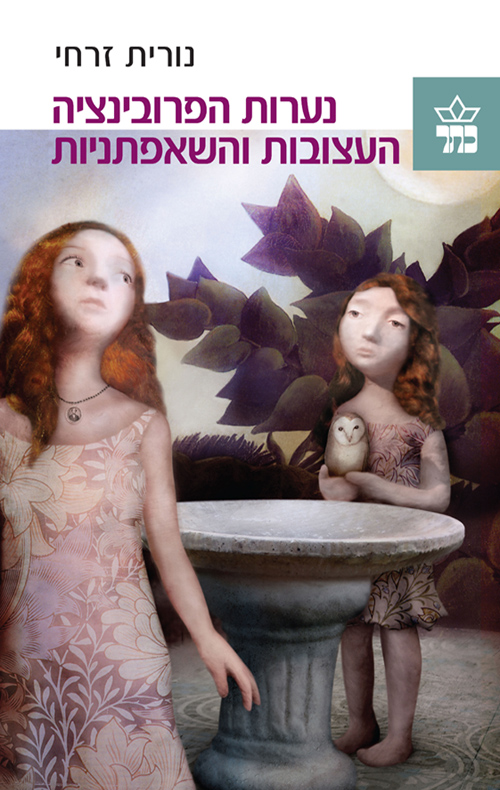
The Sad Ambitious Girls of the Province
A married woman starts work at a press archive during one of Israel’s wars, and her past rushes back; in a cafי in Afula a young woman meets K., a writer who has gone the way of all flesh; a little girl hypnotized by mistake is condemned to a life of constant searching; a young female soldier meets dead French philosophers; two sisters try to raise their father from the dead, only to conjure up something entirely different; and an adolescent girl finds a fairy boot outside the memorial hall of her kibbutz.
The Sad Ambitious Girls of the Province contains seven poetic stories that are an original blend of prose, poetry, fantasy and essay. At the heart of each story is a female character-child, adolescent, woman-unwittingly motivated by an excess or inner lack which drives her to the limits of reality, and forces her to face the miraculous hidden in her life.
“Women have always possessed a knowledge that must not be revealed,” remarks the book’s imaginary reader. And Nurit Zarchi, taking her character’s cue, skillfully sketches the outlines of that knowledge. In each story, she explores the tension between loneliness and the strange world each protagonist suddenly faces. And each story offers a different perspective on women’s reality: at times, this tension is her defining quality, at times it recreates her and at others it is the very thing that consumes her identity.

-
“ Poetic, beautiful and moving are a few of the adjectives one can use to describe Nurit Zarchi's new book… It opens the door into her spellbinding inner worlds... One of the most beautiful, delicate and moving books I've read lately. ”
-
“ Zarchi's writing combines sophisticated metaphors and fables… Indeed, it is a wonderland in which Zarchi creates a very personal language and touch. ”
-
“”
